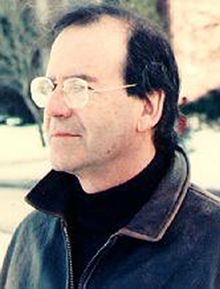Michael J. Shapiro
| Michael J. Shapiro | |
|---|---|

Michael Shapiro in Hawaii
|
|
| Born | February 16, 1940 |
| Era | 20th-century philosophy |
| Region | Western Philosophy |
| School | Political philosophy, Critical theory |
|
Main interests
|
Cultural Studies, film theory, International Relations theory, literary theory, African American Studies, comparative politics, geography, sociology, urban planning, economics, psychoanalysis, indigenous politics |
|
Influences
|
|
Michael Joseph Shapiro (born February 16, 1940) is an American educator, theorist, and writer. He is a Professor of Political Science at the University of Hawaiʻi at Mānoa. His work is often described as "postdisciplinary," drawing from such diverse fields as political philosophy, critical theory, cultural studies, film theory, international relations theory, literary theory, African American studies, comparative politics, geography, sociology, urban planning, economics, psychoanalysis, crime fiction, genre studies, new musicology, aesthetics and indigenous politics.
As the political theorist William E. Connolly has described him: "no one writing in English today has as wide a command over diverse references or develops more profound insights from them".
Shapiro's early work in political science covered the conventional areas of the discipline, including political psychology, decision theory and electoral politics. Around 1980, however, under the influence of philosophers such as Michel Foucault, Shapiro began employing concepts from continental philosophy and cultural studies including governmentality, micropolitics, the movement-image, the time-image, and rhythmanalysis, while introducing uncoventional devices such as first-person narrative into his essays. Shapiro's postdisciplinary political thought is the subject of a forthcoming volume from the Routledge book series "Innovators in Political Theory", which will feature a retrospective of his most important essays in a single volume.
...
Wikipedia
